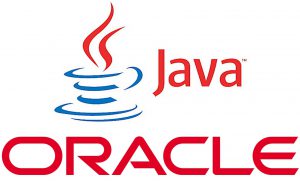- Java is one of the most widely used programming language for developing and delivering mobile applications, games, web-based content, and enterprise software.
- Oracle has provided free public updates of Java SE since the acquisition of Sun Microsystems in 2010.
- As of January 2019, Oracle will require business users to obtain a commercial (subscription) license to receive updates for Oracle JDK
Java SE Public Updates
Oracle announced that effective January 2019, public updates for business, commercial, or production use of Oracle Java SE 8 will require a commercial license and public updates for individual, personal use of Oracle Java SE 8 will remain available at least through the end of 2020. Therefore, customers that remain on Java SE 8 beyond the deadlines will no longer receive updates without a Java SE Subscription.
The following table includes a list of Java SE public updates by release version that Oracle will make available to commercial and personal users:
| Release | General Availability Date | End of Public Updates Notification |
Commercial User – End of Public Updates |
Personal User – End of Public Updates |
| 7 | July 2011 | March 2014 | April 2015 | April 2015 |
| 8 | March 2014 | September 2017 | January 2019 | December 2020 |
| 9 (Non-LTS) |
Septermber 2017 | September 2017 | March 2018 | March 2018 |
| 10 (Non-LTS) |
March 2018 | March 2018 | September 2018 | September 2018 |
Release Schedule
Oracle has also made changes in regard to the Java SE product release schedule and the type of release offered. As of Java SE 8, Oracle will designate a release as a long-term support (LTS) release every three years. Non-LTS releases are considered a cumulative set of implementation enhancements of the most recent LTS release.
For example, Java SE9 (Non-LTS) release is superseded by Java SE 10 (Non-LTS) release which is superseded by Java SE 11 (LTS) release. Java SE 11 is a long-term support release and Oracle customers will therefore receive Premier Support and periodic releases even after Java 12 (Non-LTS) is released.
Java SE Support
Customers who have Oracle Java SE Advanced, Oracle Java SE Advanced Desktop, Oracle Java SE Suite, or Java SE with an Oracle product will continue to receive support and updates as usual. Customers who require critical bug fixes, security fixes, and general maintenance including previous versions can purchase Java SE support through a Java SE subscription.
The following table depicts Oracle’s Java SE Support Roadmap:
| Release | General Availability Date | Premier Support until Notification | Extended Support Until | Sustaining Support |
| 6 | December 2006 | December 2015 | December 2018 | Indefinite |
| 7 | July 2011 | July 2019 | July 2022 | Indefinite |
| 8 (LTS) |
March 2014 | March 2022 | March 2025 | Indefinite |
| 9 (Non-LTS) |
September 2017 | March 2018 | Not Available | Indefinite |
| 10 (Non-LTS) |
March 2018 | September 2018 | Not Available | Indefinite |
| 11 (LTS) |
September 2018 | September 2023 | September 2026 | Indefinite |
| 12 (Non-LTS) |
March 2019 | September 2019 | Not Available | Indefinite |
Pricing
The Oracle Java SE subscription price for use on servers and/or cloud deployments is $25.00 per month per processor with volume discounts available. The Oracle Java SE subscription price for use on desktops is $2.50 per month per user, with volume discounts available. One, two, and three year subscriptions are available.
Options
Customers that need more time or prefer the flexibility of choosing when to migrate their applications would need to purchase a Java SE subscription. Per Oracle, ‘From Java 11 forward… Oracle JDK builds and OpenJDK builds will be essentially identical… yet with some cosmetic and packaging differences.’
Customers that opt not to purchase a Java SE subscription can opt to transition Java SE applications to OpenJDK binaries under the general public license (GPL) with classpath extension. OpenJDK builds are available on a six-month release cycle with scheduled quarterly security updates.
Conclusion
Organizations should review the availability of Java SE public updates and the Java SE Support Roadmap and identify every application running Java before the new Oracle Java SE licensing changes go into effect to avoid non-compliance and financial exposure. Please contact Miro for questions or assistance with the new Oracle Java SE licensing changes to ensure a fully compliant environment.
Contact Miro
[pardot-form width=”700″ height=”800″ id=”44198″ title=”Wordpress Form – Contact Us”]